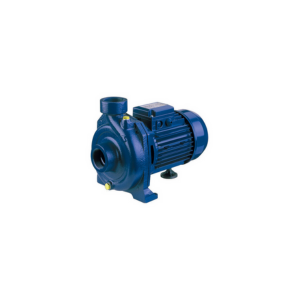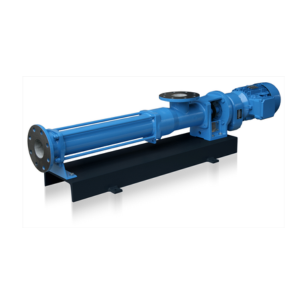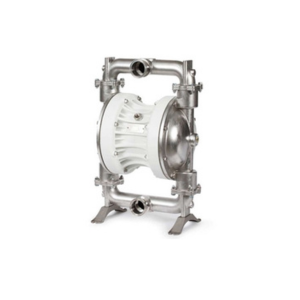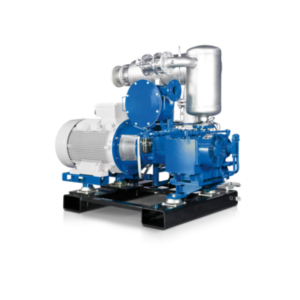Powering a Greener Future with Pumpscart Biogas Solutions
Discover the Future of Sustainable Energy with Pumpscart! Our Advanced Pumps Drive Efficiency, Reliability, and Environmental Responsibility in the Biogas Industry. Join the Movement Toward a Greener Tomorrow!
Pumpscart is your trusted partner in the biogas industry, providing cutting-edge pump solutions that drive sustainability and efficiency. Our innovative pumps are designed to optimize every stage of biogas production, from feedstock handling to gas compression and more. With a commitment to environmental responsibility and technological advancements, we empower biogas facilities to maximize output while minimizing their carbon footprint. Choose Pumpscart for a cleaner, greener, and more sustainable future in biogas production.s
Types of Pumps Used in the Biogas Industry

Rotary Pumps
Rotary pumps operate with a rotor which presses the liquid against the outside wall of the rotor chamber. Rotary pumps are very common in liquid manure technology. They are simple and robust and used mainly for substrates of less than 8% solids content. The quantity conveyed per time unit depends largely on the height of lift or the conveying pressure. The maximum conveying pressure is between 0,8 and 3.5 bar. The quantity that can be conveyed varies from 2 to 6 m3per min. at a power input of 3 – 15 kW.

Positive Displacement Pumps
Pumpscart Pumps offers a range of positive displacement pumps designed to handle the various stages of biogas production efficiently. These pumps play a crucial role in transferring organic feedstock into digesters, ensuring a consistent supply for optimal gas production.

Eccentric Spiral Pump or Rotary-displacement Pumps
This pump has a stainless steel rotor, similar to a cork screw, which turns in an elastic casing. The action of the rotor produces an advancing space in which the substrate is transported. Eccentric spiral pumps can suck from a depth of up to 8.5m and can produce a pressure of up to 24 bar. The are, however, more susceptible to obstructive, alien elements than rotary pumps. Of disadvantage is further the danger of fibrous material wrapping round the spiral.

Rotary Piston Pump
Rotary displacement pumps have two counter-rotating rotary pistons with between two and six lobes in an oval body. The two pistons counter-rotate and counter roll with low axial and radial clearance, touching neither each other nor the body of the pump. Their geometry is such that in every position a seal is maintained between the suction side and the discharge side of the pump. They can pump and suck as well and achieve pressures of up to 10 bar. The potential quantity conveyed ranges from 0.5 to 4 m3/min.

Centrifugal Pumps
Our centrifugal pumps are tailored to efficiently handle biogas, whether it’s for gas compression, gas transfer, or heat exchange within the anaerobic digestion process. These pumps are designed to maximize process efficiency.

Pump Delivery Lines
Pump delivery lines can be made of steel, PVC (rigid) or PE (rigid or flexible), as well as appropriate flexible pressure tubing made of reinforced plastic or rubber. Solid substrate, e.g. dung, can also be handled via conveyor belt, worm conveyor or sliding-bar system, though none of these could be used for liquid manure. When liquid manure is conducted through an open gutter, small weirs or barrages should be installed at intervals of 20-30 m as a means of breaking up the scum layer.

Screw Pumps
Pumpscart’s screw pumps excel in transferring biogas, a crucial step in the biogas upgrading process. These pumps ensure that biogas can be effectively compressed, stored, and transported for various applications.

Diaphragm Pumps
Our diaphragm pumps are ideal for handling feedstock materials. They provide a clean and precise way to transfer organic waste into digesters, maintaining the integrity of the anaerobic digestion process.

Specialized Pumps
Pumpscart offers specialized gas compressors for efficiently compressing biogas, ensuring it’s ready for storage or transportation. We also provide mixing and agitation pumps that are vital in optimizing gas production and preventing crust formation.
Applications of Pumps in the Biogas Industry
1. Feedstock Handling
Pumpscart Pumps play a pivotal role in the initial phase of biogas production, pumping organic waste materials into digesters. Our pumps ensure a consistent and reliable feedstock supply, contributing to efficient gas production.
2. Digestate Management
We offer solutions for managing digestate, the byproduct of the anaerobic digestion process. Our pumps facilitate the transfer and responsible management of digestate for further use or disposal, reducing environmental impact.
3. Gas Compression
Pumpscart’s gas compressors ensure efficient compression of biogas, preparing it for storage and transportation. We contribute to biogas upgrading processes, where higher methane content is essential.
4. Heat Transfer
Our pumps assist in transferring heat within the anaerobic digestion process, optimizing microbial activity and gas production. This heat recovery process contributes to increased overall efficiency.
5. Gas Mixing and Agitation
Pumpscart’s specialized pumps maintain proper mixing in the digesters, ensuring an optimal environment for anaerobic digestion. This prevents crust formation and maximizes biogas production
Technological Advancements and Innovations
1. Smart Pumping Systems
Pumpscart integrates advanced sensors and automation into our pumping systems for precise control and monitoring. These systems improve process efficiency and reliability, ultimately reducing operational costs.
2. Energy Efficiency and Sustainability
Our commitment to sustainability is reflected in the energy-efficient pump technologies and environmentally responsible designs we offer, supporting the biogas industry’s environmental goals.
3. Remote Monitoring and Control
Pumpscart embraces cutting-edge technology for remote monitoring and control, allowing biogas facility operators to manage pumping systems efficiently, even from a distance.
Challenges and Solutions
1. Corrosion and Abrasion
Pumpscart Pumps addresses challenges such as corrosion and abrasion through carefully selected materials and coatings, ensuring the longevity and performance of our pumps in the harsh biogas environment.
2. Maintenance and Reliability
We understand the importance of regular maintenance in biogas facilities. Pumpscart Pumps employs predictive maintenance strategies to ensure reliable, continuous operation, minimizing downtime and associated costs.
3. Environmental Regulations
Our pumps are designed to help biogas facilities comply with environmental standards and emissions control. Pumpscart contributes to reducing the carbon footprint of biogas production, aligning with industry and global sustainability goals.
In conclusion, Pumpscart Pumps plays a pivotal role in the success and sustainability of the biogas industry. Our commitment to innovation, efficiency, and environmental responsibility ensures that the production and utilization of biogas continue to thrive—partner with Pumpscart for the future of sustainable energy.
FAQ
Certainly, here’s a set of frequently asked questions for the biogas industry pumps application
What is biogas pump?
Biogas Production. Bio-Mix pump is used to mix and transfer slurry made of macerated bio-waste and digestate liquid into fermentation.
Is biogas a source of energy for pumps?
Using biogas for pumps in irrigation is gaining in popularity in India and elsewhere, as the savings in petroleum fuel prices are great. A diesel pump can also be converted into a bio-gas pump used for pumping water.
Pump Applications in Biogas Industry
Feeding highly viscous bio-waste slurry to fermentation tanks.
Recirculation of fermentation tank slurry and feeding to digestate storage tanks
Mixing of Bio-waste with the digestate slurry
Transfer of digestate to bio-mix unit & open lagoon/storage tank
Transferring Organic Manure from open lagoon/storage tanks to tankers
Biogas pump specifications
Head 1.8-10.8 mm
Max Flow Rate 400-100 lpm
Frequency 50-60Hz
Voltage 0.75 kW
Brand Green connect
What is the role of pumps in the biogas industry?
Pumps play a crucial role in various stages of biogas production and utilization. They are used for feedstock handling, digestate management, gas compression, heat transfer, and gas mixing, ensuring efficient and reliable biogas production.
What types of pumps are commonly used in the biogas industry?
Common pump types in the biogas industry include positive displacement pumps, centrifugal pumps, screw pumps, diaphragm pumps, and specialized pumps like gas compressors and mixing pumps.
How do positive displacement pumps benefit biogas facilities?
Positive displacement pumps are excellent for consistent and precise feedstock handling, which is essential for optimal biogas production. They maintain a constant flow rate, making them ideal for this purpose.
What are the advantages of using gas compressors in the biogas industry?
Gas compressors are crucial for biogas upgrading, where the methane content is increased. They help prepare biogas for storage and transportation, making it suitable for various applications.
How do pumps contribute to sustainability in the biogas industry?
Pumps, when designed with energy-efficient technologies and materials, reduce energy consumption and contribute to the overall sustainability of biogas production. They also play a role in digestate management, minimizing environmental impact.
What challenges do pumps face in the biogas environment, and how are they addressed?
Pumps in the biogas industry often face challenges related to corrosion and abrasion due to the harsh environment. These challenges are addressed through careful material selection and the use of protective coatings.
How can I ensure the reliability of pumps in my biogas facility?
Regular maintenance is essential to ensure the reliability of pumps in biogas facilities. Implementing predictive maintenance strategies can help prevent downtime and costly repairs.
What environmental regulations do biogas facilities need to comply with regarding pump operation?
Biogas facilities need to comply with emissions control and environmental standards. Pumps can assist in adhering to these regulations by minimizing emissions and supporting environmentally responsible practices.
Can Pumpscart Pumps provide customized solutions for biogas facilities?
Yes, Pumpscart Pumps offers customized pump solutions tailored to the specific needs of biogas facilities. We work closely with our clients to ensure our pumps meet their unique requirements.
What is the future of pump technology in the biogas industry?
The future of pump technology in the biogas industry is promising. Expect to see continued advancements in smart pumping systems, energy efficiency, remote monitoring, and environmentally responsible designs to further enhance the sustainability and efficiency of biogas production.
